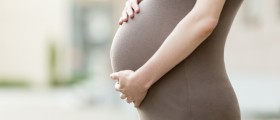
In the past, women who had been diagnosed with epilepsy were generally discouraged from becoming pregnant and having children. Fortunately, today that is no longer the case. With proper care, careful prenatal monitoring and frequent consults with doctors, more than 90% of pregnant women with epilepsy give birth to healthy and strong babies.
Effects on epilepsy on pregnancy
First of all, sometimes it may be difficult for a woman with epilepsy to become pregnant in the first place. Issues like menstrual irregularities and certain medications may interfere with fertility, although that is not very common.
Once they become pregnant, women with epilepsy have a higher risk of pregnancy-related issues, such as morning sickness, mood swings, cravings, weight gain, edema and such. For them, these issues may be more significant than in other pregnant women.
Furthermore, pregnant women with epilepsy also have the higher risk of complications, for example severe morning sickness leading to dehydration or malnutrition, anemia, vaginal bleeding, placental abruption, pre-eclampsia, miscarriage, premature birth and low birth weight of the baby.
As for the effects of pregnancy on epilepsy and seizures, it all depends on various factors and there is no general rule of thumb. In some women seizures may become less frequent and milder, but on others, especially in those whose epilepsy is poorly controlled, the seizures may actually become worse.
As far as the baby is concerned, the effects of epilepsy may include slightly higher risk of seizures and some minor birth defects, such as smaller upper lip and wide-set eyes.
Epilepsy medication during pregnancy
There are only a few medications that are allowed in pregnancy. Most drugs are absolutely forbidden because they increase the chance of birth defects, such cleft palate, neural tube defects, congenital heart disease, urinary tract defects, skeletal abnormalities and many more.
The risk of birth defects for babies whose mothers take medications for seizures ranges from four to eight percent, compared to two or three percent rate for all babies. On the other hand, not taking medications for controlling seizures can be dangerous for the baby too, for example due to limited oxygen supply.
Considering that, the safest thing to do is to continue taking medications throughout the pregnancy but only after consulting a doctor, who will describe the most appropriate medication considering the pregnancy and the type of seizures.
In most pregnant women the medications are filtered out of the body more quickly than before pregnancy, due to an increase in blood volume which makes the kidneys work faster. Because of this, many doctors actually increase the dosage of seizure drugs in pregnant women.

















Your thoughts on this
Loading...